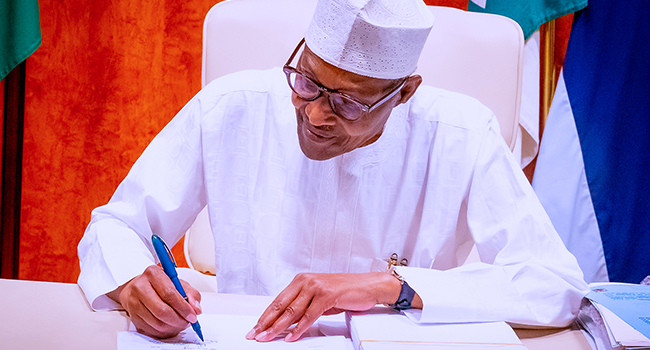The UK government has advised the Nigeria to improve the standards of its products to enable the country export 99 per cent of its goods to the UK, tariff free by 2023.
British High Commissioner to Nigeria Catriona Laing gave the advice in Abuja.
August 17, the UK government announced the Developing Countries Trading Scheme (DCTS) where 999 per cent of goods from Nigeria will be eligible to enter U.K duty-free by 2023.
Laing said producing standard products for export would enable Nigeria to reap bountifully from the UK’s new trade scheme in 2023 which would enable the country balance its trade with the European country.
She also lamented the poor market environment and policies in Nigeria which she said had affected the ease of doing business in the country and caused a reduction in UK’s export to Nigeria.
She noted that as Nigeria’s strategic partner, the UK is supporting Nigeria in its quest to improve the standards of its commodities for export.
“Well, there is a number of things that needs to happen. So I think in order to export successfully, on our side, what we need to do to make it as opened as possible.
“And we as a country, particularly post Brexit, we want to ensure that access to our market is very open and that is why we are about to introduce the developing country trading scheme, which will apply to Nigeria, it will come in early 2023.
“And it means for Nigeria, 99% of your exports to the UK will be completely tariff free. So no trade barriers.
“Say if you’re a cocoa butter exporter, for example, in the old world, you would have had to pay 180,000 pounds in tariffs. Now that will be done, and that we think will help.
“But there are also what we call non tariff barriers and this is where Nigeria does need to up the game a little bit.
“So that means reaching product standards, sanitary and phytosanitary standards, if you are exporting agricultural products.
“And we have quite strict rules to ensure you know that animals and plants are meeting these high standards to prevent any pandemic spreading and so on.
“And we are also supporting Nigeria to be able to meet those product standards,” Laing said.
On creating an enabling environment to boost production, especially for exports, Laing also advised that the Nigerian government amend some of its policies which have not been favourable.
“I think the third thing is your policy environment. To be honest, it is quite hard to do business in Nigeria, doing a business here is hard work, energy costs a lot you know, road transport costs a lot, and productivity generally is pretty low.
“So some of the barriers your own governments put into place for example, the ban on imports does not actually help Nigerians who are trying to export because you need to import in order to export.
“And I heard the vice president actually speak about this very eloquently at the recent ministerial retreat.
“So I think Nigeria, to be honest, has made some mistakes on its own policy. So all of those sorts of policy environment needs to be right and then we need to be open to your exports.
“I would encourage investment both ways and that is exactly what we want to do because it’s not a zero-sum game.
“If you can export good products to us. We are delighted and equally we want to be able to to access your market both through trade but also through investment,” Laing said.
According to a recent UK government report, exports from UK to Nigeria in the second quarter of 2022 stood at 3.3 billion pounds, while imports from Nigeria stood at 2.2 billion pounds.
Foreign Direct Investment inflow from UK to Nigeria was 5 billion pounds, while from Nigeria to UK it stood at just 780 million pounds.












